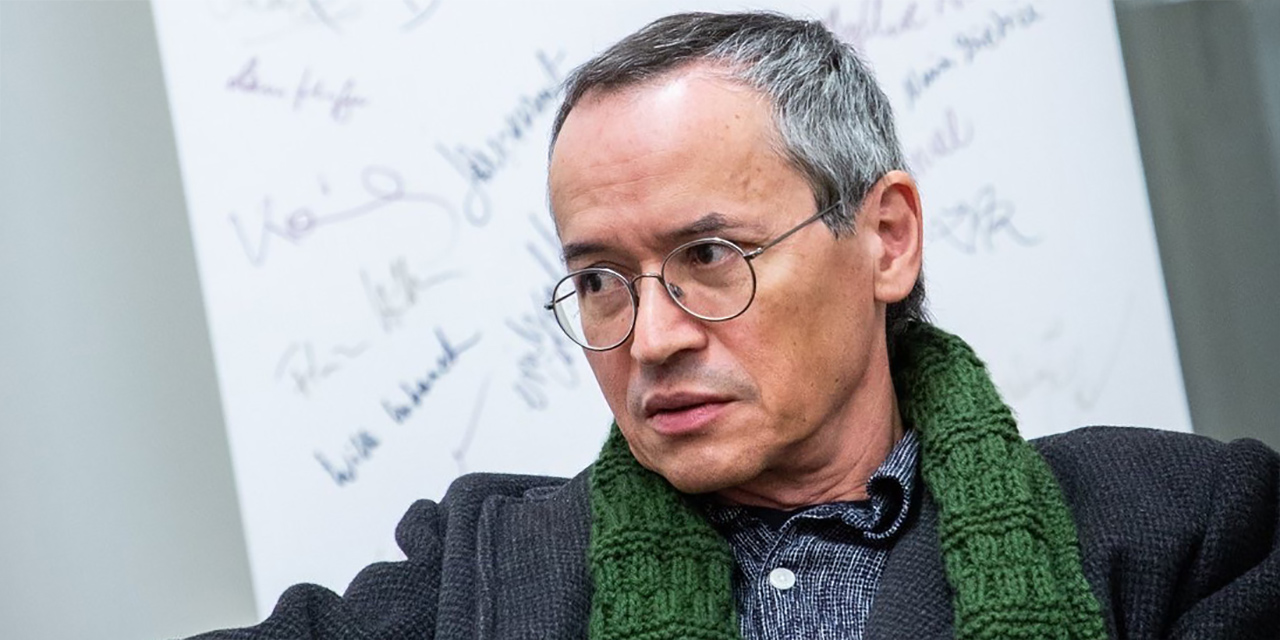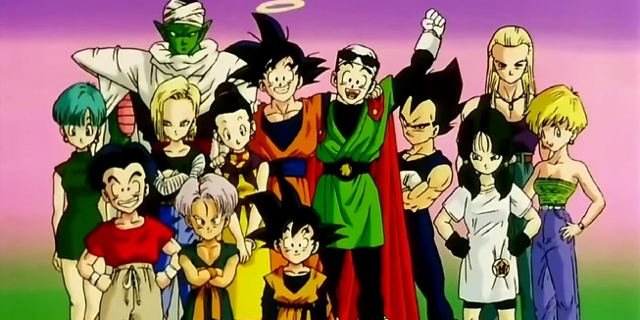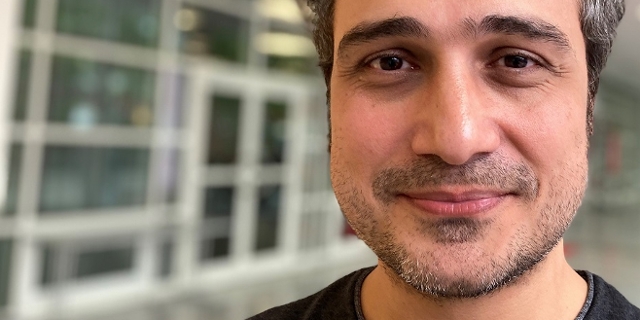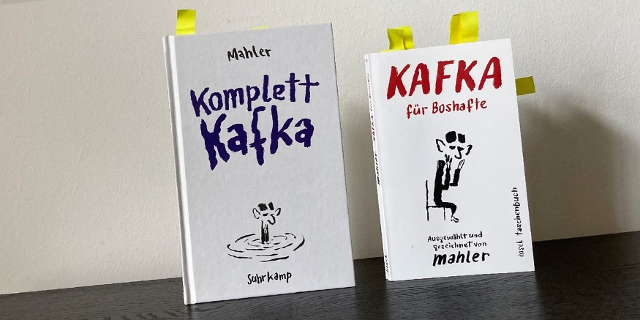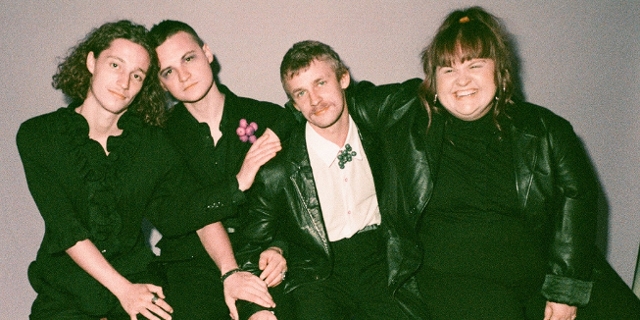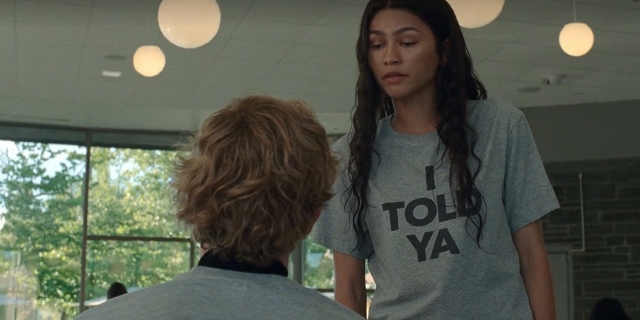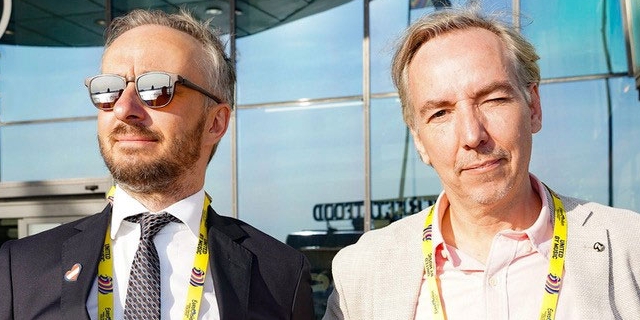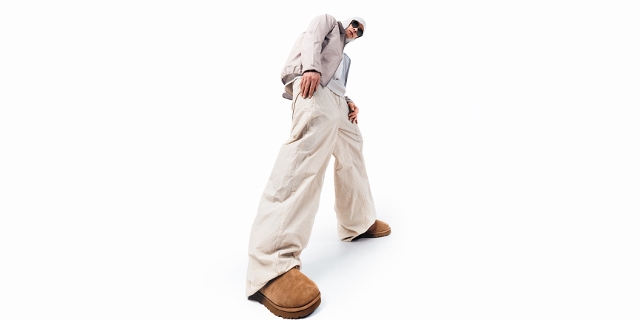Comic-Reporter Joe Sacco über „Fake News“ und seine Arbeit
Von Paul Pant
Der amerikanisch-maltesische Comiczeichner und Journalist Joe Sacco gilt als der Pionier der Comic-Reportage, auch wenn er diese Bezeichnung gerne wegwischt mit Verweisen auf gezeichnete Sozialreportagen aus dem 18. Jahrhundert. Am liebsten spricht er von sich als „Cartoonist“, sagt er mit einem Lächeln. „Das hat einen Flow“, sagt er. Trotzdem, Sacco hat die nicht fiktionale Comic-Reportage auf ein neues Level gehoben und gibt die Messlatte vor. Saccos gezeichnete Reportagen aus Kriegsgebieten in Bosnien und dem Gaza-Streifen haben ihn weltberühmt gemacht.
Im Mai 2020 soll Joe Saccos neues Buch „Paying the Land“ erscheinen. Darin geht es um die Entwurzelung der Ureinwohner in Kanada. Und es gibt noch zwei weitere Projekte auf seinem Schreibtisch. Ein Comic über die Rolling Stones und ein Buch über Armut in den USA.
Seine Graphic Novels zeichnen sich durch jahrelange, akribische Recherche aus. Damit schafft er einzigartige, präzise Analysen für zeitgenössische Fragen und Konflikte, wo sich Nachrichtenjournalist*innen oft die Zähne ausbeißen. Als journalistisch objektiv will er seine Comic-Reportagen aber nicht verstanden wissen. Joe Sacco will sich auch nicht in eine Schublade stecken lassen. Wichtig ist ihm nicht das Label, sondern dass er seine Geschichten richtig erzählt.
Comic, Essay, Artikel oder Karikatur, das Wie ergibt sich aus dem, was er erzählen, was er ausdrücken will, sagt er. Ich habe Joe Sacco anlässlich der Erich-Fried-Tage im Wiener Literaturhaus getroffen. Hier ein Auszug aus dem Gespräch:
FM4: Joe Sacco, you are the pioneer of comic journalism. Is this a definition for your work you like?
Joe Sacco: Well, I don’t know about pioneer. I think there are antecedents to what I have done. People would be doing this kind of thing in the 18th century with the London illustrated news, people drawing conflicts, or travelling around to do some reporting with illustrations. I say I am a cartoonist first, but what I am known for is the journalism I do in the comics form.
FM4: There are a lot of discussions going on about journalism. What do you think about the current state of journalism in the western societies?
Joe Sacco: It seems it is in a very confused state being made more confused by people defining it or saying what it is or what it isn’t. We keep hearing this expression „fake news“ all the time. Let’s be clear, there has always been fake news. A lot of news is. It comes from a filter, a prejudice. I mean that is one of my main criticisms of the news journalism: it can give people perceptions that are not close to the truth. You can tell a lot of facts, objective facts without getting close to the honest truth of a situation. So I always have been very critical of the news media. But now I feel like the right is definitely trying to take away all the credibility of serious reporting.
FM4: How do you mean that there has always been fake news?
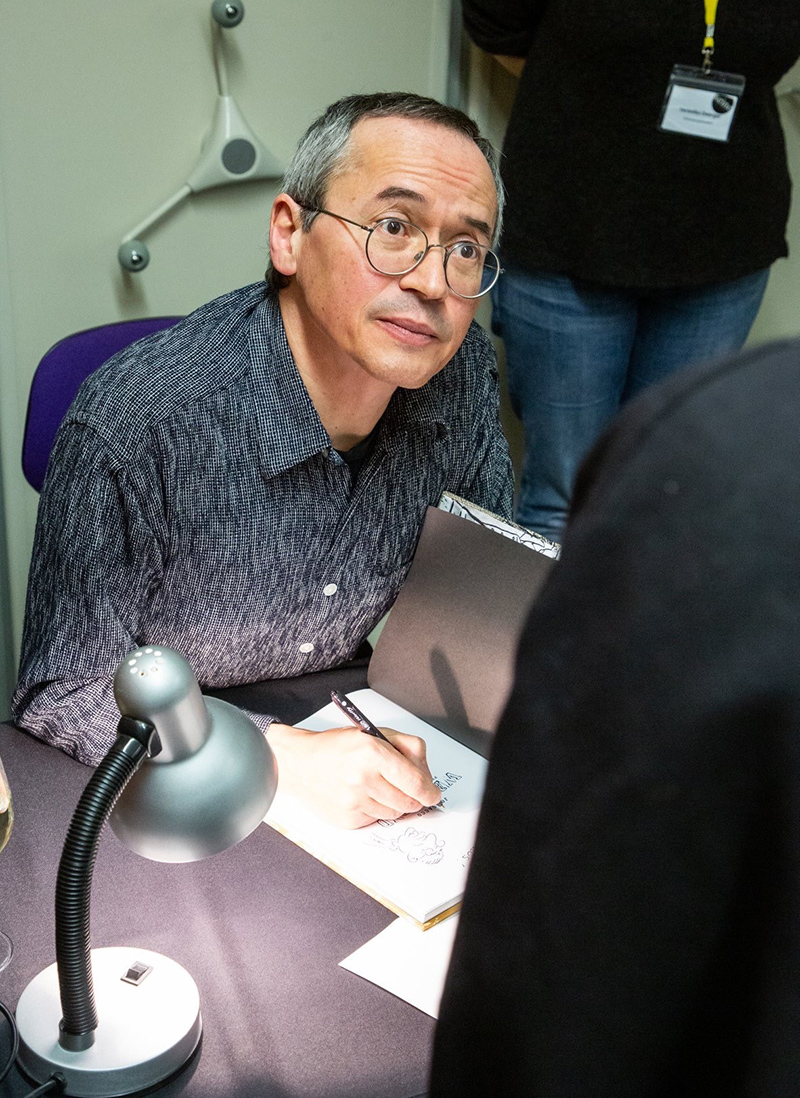
Literaturhaus Wien | Lukas Dostal
Joe Sacco: I think „fake news“ has always been a problem in journalism. We often get versions of what’s going on, that just simply aren’t true. And that is one of the reasons I started doing journalism in comics. I grew up thinking Palestinians were terrorists, for example, now, where do I get that from? I got that from the US media because they would report objective facts - hijacking, an attack on a bus, all true events but they weren’t filling in any background and they weren’t telling any other things that were going on. That might have changed my perception of how I view that particular topic. So fake news is sort of what pulled me into journalism and made me think I want to find out what’s going on. Journalism is about going to, talking to people, finding out what they think and investigating on the ground. A big problem today is there is no money for it. Like there used to be. Advertising dollars are trained out of journalism now so all we have is people expressing their opinion because that is very cheap. You know, get in front of a camera and say what you think of this situation without going there. It is easy to have an opinion. So there are so many problems with journalism, it’s such a big topic. It is a swirling mess at this point.
FM4: This is one of the big struggles every journalist has got, just looking over the surface without having the time and the money and the resources to dig deeper.
Joe Sacco: That is the big issue and that is the problem. That is sort of the problem with companies like Facebook and Google. Companies advertise on Facebook and Google which take the links [from the newspapers] for free. Google gets the advertising dollars for the work that newspapers and magazines are doing. Which drains money from standard journalism. And that is a big problem because it takes time and it takes money to report properly and to sort of sink into a story and let yourself sink into it. That is why I think it is part of the great mess journalism is finding itself in. It’s not all just because of what journalists have and haven’t done. Economic forces are restricting what journalists can do also.
FM4: When you are looking for a new story or when you do a research, what drives you? Or what interests you on the first view?
Joe Sacco: Well, a lot of things interest me, but I always have to ask myself: Will I be interested four years, maybe five years from now, when I am still working on this book. Because books take a long time. Drawing just takes a long time. So whatever I am interested in just has to hit me somehow in the gut. Right now I am trying to look at stories that do not involve war. But as much as I have tried you can’t really get away from human conflict. But any story I choose has to matter to me and I don’t choose my stories lightly. I need to know the passion that got me involved will be maintained through the whole process.
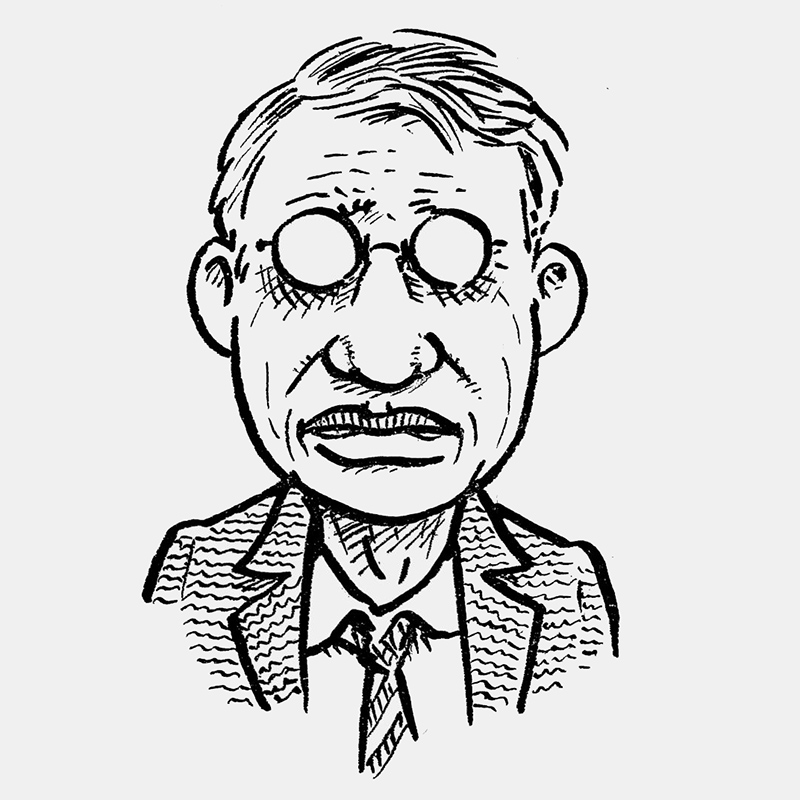
Joe Sacco
Joe Sacco ist 1960 in einem kleinen Dorf in Malta geboren. Mit seinen Eltern ist er zunächst nach Australien ausgewandert, später in die USA nach Portland, Oregon gezogen. Dort hat er seine zweite Heimat gefunden. An der Universität Oregon hat er Journalismus studiert. Heute besitzt er sowohl einen maltesischen EU-Pass als auch einen US-Reisepass. Der EU-Pass hilft ihm nicht zuletzt bei seinen Recherchen in Krisenregionen. Von den Kriegsreportagen habe er allerdings vorläufig genug, sagt Sacco.
FM4: I saw your notebook in an interview about your Gaza book. You write down everything. For example, a description of just one tank took some pages. You first make all the interviews, then you take pictures, then you go home, write down everything you saw. And when you have done that, you start to write, even before you start to draw. How long does it take?
Joe Sacco: I transcribe all my Interviews and that’s a stack of interviews. For [the book „Footnotes in Gaza“] it was about 70 something interviews. I had about four journals and that came to - I don’t know - 400 some pages of things that happened outside of the interview. What I do before I start even writing is, I index all that. Because 400 some pages are a lot. So when I get home I get through, I re-read everything. I make lists of names, of characters that come up in the book. It’s a very complicated process, but it puts all the information at my fingertips. It can take weeks to do that. Really weeks. Then the writing. I am never sure how long the writing is going to take because I love writing but it is one of those things where you can have this flow - where you can write three pages in a day and you really feel good about that. Or you can spend the whole day just on one or two sentences - you think: Oh, I just need a good transition here. Drawing to me, and don’t take this in a strange way, it is like digging a ditch. I enjoy it, but I kind of know how far I am going to get every day.
FM4: This sounds like a really scientific approach?
Joe Sacco: It’s being developed over time. Through trial and error. I won’t say it is a science, but a way that helps me do the work. It probably looks very labor-intensive, because it is labor-intensive. Takes a lot of time.
FM4: Joe Sacco. Thank you for the interview.
Joe Sacco: Vielen Dank, my pleasure.
Publiziert am 13.12.2019







